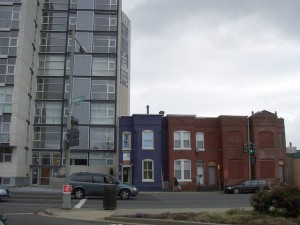How to Talk about Wealth Disparities
Just how rich are the rich? Americans are totally off-the-mark when answering that question, at least according to a recent study [PDF], which found that although the top fifth richest Americans own 85 percent of the country’s wealth, many Americans thought that figure was closer to 59 percent.
Make no mistake, in D.C., the disparities between the rich and poor are severe and were only made worse by the recession: in 2009, median household incomes in parts of Wards 2, 6 and 1 rose significantly but dropped East of the River, and 11 percent of D.C. residents were living in deep poverty, on less than $11,000 for a family of four.
Those are the facts, but just as important is how we frame the disparities between rich and poor. In an opinion piece that ran Monday in The Christian Science Monitor entitled “Do you think the poor are lazy?” (that’s some headline, by the way), Anat Shenker-Osorio writes about the wealth study and the role language plays in our perception of wealth inequality:
Instead of a ‘gap between rich and poor,’ we’re far better served calling it a ‘barrier.’ A barrier connotes a big, imposing wall behind which a few can hoard the goodies, while those on the other side are left wanting. When you barricade yourself in, you keep others out. Instead of asking to ‘bridge the divide,’ let’s insist on dismantling the obstacles that keep too many from the gains produced of their own hard work.
The metaphor of inequality as a barrier, wall, or other obstruction highlights several critical truths about our economy. It tells us these objects are man-made. This conveys that inequality is not some God-given, inevitable, natural wonder. We have built these barriers, and we can bring them down. In other words, there’s another way our economy can be structured if we elect and work for it.
Sure, more accurately describing the wealth disparity problem won’t actually make it less severe, but it’s certainly a step in the right direction.
-
Shortstaxx






